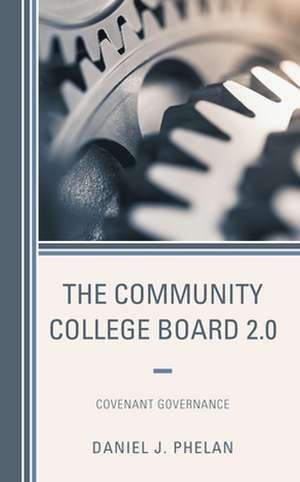COMMUNITY COLLEGE BOARD 2.0COCB
Autor Daniel J. Phelanen Limba Engleză Hardback – 4 feb 2021
Preț: 577.61 lei
Preț vechi: 750.14 lei
-23% Nou
Puncte Express: 866
Preț estimativ în valută:
110.54€ • 114.53$ • 92.25£
110.54€ • 114.53$ • 92.25£
Carte tipărită la comandă
Livrare economică 22 martie-05 aprilie
Preluare comenzi: 021 569.72.76
Specificații
ISBN-13: 9781475850253
ISBN-10: 1475850255
Pagini: 204
Dimensiuni: 152 x 229 x 23 mm
Greutate: 0.51 kg
Editura: Rowman & Littlefield
ISBN-10: 1475850255
Pagini: 204
Dimensiuni: 152 x 229 x 23 mm
Greutate: 0.51 kg
Editura: Rowman & Littlefield
Notă biografică
Cuprins
Descriere
Board governance is examined from perspectives of historical, theoretical, and functional modalities. Present governance challenges associated with board culture, historical practices, policy, politics, talent acquisition, and contracts are reviewed. In-person board/CEO interviews suggest a need for change. A new approach to governing is proposed.
